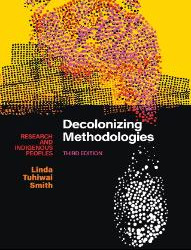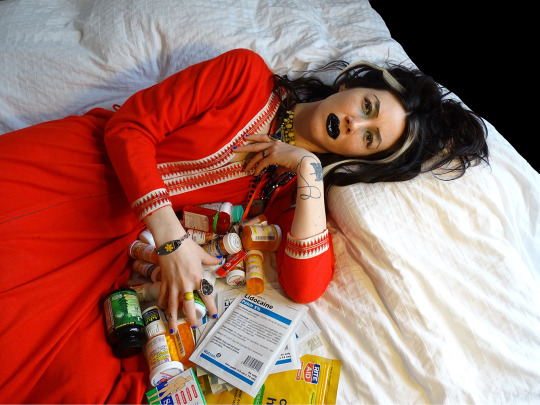Text
The Stargate Project is giving "IBM and the Holocaust."
"The leaders of OpenAI, Oracle and SoftBank outlined a $500 billion, four-year plan to build out U.S. artificial intelligence infrastructure at the White House on Tuesday. The companies will create a joint venture, dubbed Stargate, which is committing an initial $100 billion to build data centers and other campuses, with more investment to come. SoftBank CEO Masayoshi Son will serve as Stargate's chair; Nvidia, Arm and LinkedIn parent Microsoft are also among the technology partners" (https://www.linkedin.com/news/story/tech-giants-unveil-500b-ai-venture-6530417/)
Hmm... makes me think of:

"IBM & the Holocaust tells of IBM's strategic alliance with Nazi Germany--beginning in 1933 in the 1st weeks that Hitler came to power & continuing well into WWII. As the 3rd Reich embarked upon its plan of conquest & genocide, IBM & its subsidiaries helped create enabling technologies, step-by-step, from the identification & cataloging programs of the 30s to the selections of the 40s. Only after Jews were identified--a massively complex task Hitler wanted done immediately--could they be targeted for efficient asset confiscation, ghettoization, deportation, enslaved labor & annihilation. It was a cross-tabulation & organizational challenge so monumental, it called for a computer. Of course, in the 30s no computer existed. But IBM's Hollerith punch card technology did exist. Aided by the company's custom-designed & constantly updated Hollerith systems, Hitler was able to automate the persecution of the Jews.
Historians were amazed at the speed & accuracy with which the Nazis were able to identify & locate European Jewry. Until now, the pieces of this puzzle have never been fully assembled. The fact is, IBM technology was used to organize nearly everything in Germany & then Nazi Europe, from the identification of the Jews in censuses, registrations & ancestral tracing programs to the running of railroads & organizing of concentration camp slave labor. IBM & its German subsidiary custom-designed complex solutions, anticipating the Reich's needs. They didn't merely sell the machines & walk away. Instead, IBM leased these machines for high fees & became the sole source of the billions of punch cards needed.
IBM & the Holocaust details the carefully crafted corporate collusion with the 3rd Reich, as well as the structured deniability of oral agreements, undated letters & the Geneva intermediaries--all undertaken as the newspapers blazed with accounts of persecution & destruction. Just as compelling is the human drama of one of our century's greatest minds, IBM founder Thomas Watson, who cooperated with the Nazis for the sake of profit. Only with IBM's technologic assistance was Hitler able to achieve the staggering numbers of the Holocaust. Edwin Black has now uncovered one of the last great mysteries of Germany's war against the Jews: how Hitler got the names."

#the stargate project#trump#political economy#IBM and the Holocaust#Edwin Black#Open AI#aritificial intelligence#aritifical intelligence#media studies
0 notes
Text
Klein: "Israel Has Weaponized October 7 Trauma to Justify Its Genocide in Gaza"
youtube
0 notes
Text
0 notes
Text
Rethinking Holocaust Memory after October 7
By Marianne Hirsch
https://www.publicbooks.org/rethinking-holocaust-memory-after-october-7/

0 notes
Text

"Among champions of greater sexual freedom and tolerance few were more prominent than Magnus Hirschfeld, a Prussian-born physician whose interest in alternative medical treatments and viewpoints extended to publishing (albeit pseudonymously) a tract defending same-sex love in 1896. The next year, at thirty-one years of age, he cofounded the Scientific Humanitarian Committee. Its motto was “Through science to justice,” its agenda advocacy for greater understanding of sexual minorities and, specifically, to overturn Paragraph 175, which criminalized male homosexual acts as well as other perceived sexual aberrations.
In 1919, Hirschfeld opened the Institute for Sexual Research, which offered public education and counseling. That same year saw the release of Different from the Others (Anders als die Andern), a commercial narrative feature he cowrote and appeared in and that made an impassioned, very direct plea for 175’s repeal. It was the first movie to portray homosexual characters beyond the usual innuendo and ridicule.
Thought entirely lost for many decades, then recovered just in fragmentary form, Different remains a less-than-complete artifact. The Outfest UCLA Legacy Project’s new restoration, incorporating materials from numerous sources, is the most comprehensive version available in at least eighty years. But even it is missing whole characters, subplots, and scenes, including a set piece (glimpsed only in a surviving still) in which the protagonist imagines Da Vinci, Tchaikovsky, Ludwig II, Oscar Wilde, and other historical figures who suffered for their sexual orientation. Intertitles fill in many gaps left by footage unlikely ever to be found—the Nazis made a point of destroying all the prints they could lay their hands on after they came into power in 1933."
FROM: Essay by Dennis Harvey. Read more here: https://silentfilm.org/different-from-the-others/
Watch the film here:
youtube
1 note
·
View note
Text
https://www.facebook.com/100044535425305/posts/pfbid0nPCkoq4AH53RDtmNoUpNZyVpxBCDN3rnpXkDJSY3MrBuSNWbbscx5koALWBeRMV2l/?mibextid=cr9u03
1 note
·
View note
Text

2 notes
·
View notes
Text

Examples of decolonial research methodologies - Linda Tuhiwai Smith’s 25 Indigenous projects:
Claiming
“They teach both the non-indigenous audience and the new generations of Indigenous peoples an official account of their collective story” (p. 144)
Testimonies
“Indigenous testimonies are a way of talking about an extremely painful event or series of events” (p. 144)
Storytelling
“These new stories contribute to a collective story in which every Indigenous person has a place” (p. 144)
Celebrating Survival
“Celebrating survival accentuates not so much our demise but the degree to which Indigenous peoples and communities have successfully retained cultural and spiritual values and authenticity” (p. 145)
Remembering
“Both healing and transformation become crucial strategies in any approach which asks a community to remember what they may have decided unconsciously or consciously to forget” (p. 146)
Indigenizing
“The term centres a politics of Indigenous identity and indigenous cultural action” (p. 146)
Intervening
“Intervening takes action research to mean literally the process of being proactive and of becoming involved as an interested working for change” (p. 147)
Revitalizing
“Indigenous languages, their arts and their cultural practices are in various states of crisis” (p. 147)
Connecting
“Connecting is related to issues of identity and place, to spiritual relationships and community well-being” (p. 149)
Reading
“Critical rereading of Western History and the Indigenous presence in the making of that history has taken on a different impetus from what was once a school curriculum designed to assimilate Indigenous children” (p. 149)
Writing
“Biographies and autobiographies including those which are accounts ‘told to a non-Indigenous person’, are sought after by a new reading audience of Indigenous people” (p. 150)
Representing
“Indigenous communities have struggled since colonization to be able to exercise what is viewed as a fundamental right, that is to represent ourselves” (p. 150)
Gendering
“Gendering Indigenous debates…is concerned with issues related to the relations between Indigenous men and women” (p. 151)
Envisioning
“The confidence of knowing that we have survived and can only go forward provides some impetus to a process of envisioning” (p. 152)
Reframing
“Reframing is about taking much greater control over the ways in which Indigenous issues and social problems are discussed and handled” (p. 153)
Restoring
“Indigenous peoples across the world have disproportionately high rates of imprisonment, suicide and alcoholism” (p. 155)
Returning
“This project intersects with that of claiming. It involves the returning of lands, rivers, and mountains to their Indigenous owners” (p. 155).
Democratizing
“Democratizing in Indigenous terms is a process of extending participation outwards through reinstating principles of collectivity and public debates” (p. 156)
Networking
“Networking a process which Indigenous peoples have used effectively to build relationships and disseminate knowledge and information” (p. 157)
Naming
“This means renaming the world using the original Indigenous names” (p. 157)
Protecting
“This project is…concerned with protecting peoples, communities, languages, customs and beliefs, art ideas, natural resources and the things Indigenous peoples produce” (p. 158)
Creating
“The project of creating is about transcending the basic survival mode through using a resource or capability which every Indigenous community has retained throughout colonization – the ability to create and be creative” (p. 158)
Negotiating
“Negotiating is about thinking and acting strategically…the continued faith in the process of negotiating is about retaining a faith in the humanity of Indigenous beliefs, values and customary practices” (p. 160)
Discovering
“This project is about discovering Western science and technology and making science work for Indigenous development” (p. 160)
Sharing
“The final project discussed here is about sharing knowledge between Indigenous peoples, around networks and across the world of Indigenous peoples” (p. 160).
#Twenty five Indigenous Projects#indigenization#decolonization#decolonizing research#Linda Tuhwai Smith
2 notes
·
View notes
Text
“The quality of BEING, in the object’s self, according to its own central idea and purpose, and of growing therefrom and thereto — not criticism by other standards, and adjustments thereto — is the lesson of Nature.”
1 note
·
View note
Link
0 notes
Link
0 notes
Link
0 notes
Text
Today, I discovered Sick Woman Theory by Johanna Hedva.
Portrait of Johanna Hedva. Photograph by Pamila Payne. Styled by Rhi Jade.

I share it with you here:
https://johannahedva.com/SickWomanTheory_Hedva_2020.pdf
“Sick Woman Theory maintains that the body and mind are sensitive and reactive to regimes of oppression – particularly our current regime of neoliberal, white-supremacist, imperial-capitalist, cis-hetero-patriarchy. It is that all of our bodies and minds carry the historical trauma of this, that it is the world itself that is making and keeping us sick...
The Sick Woman is an identity and body that can belong to anyone denied the privileged existence – or the cruelly optimistic promise of such an existence – of the white, straight, healthy, neurotypical, upper and middle-class, cis- and able-bodied man who makes his home in a wealthy country, has never not had health insurance, and whose importance to society is everywhere recognized and made explicit by that society; whose importance and care dominates that society, at the expense of everyone else.
The Sick Woman is anyone who does not have this guarantee of care.
The Sick Woman is told that, to this society, her care, even her survival, does not matter...
And, crucially: The Sick Woman is who capitalism needs to perpetuate itself.
Why?
Because to stay alive, capitalism cannot be responsible for our care – its logic of exploitation requires that some of us die...
The most anti-capitalist protest is to care for another and to care for yourself. To take on the historically feminized and therefore invisible practice of nursing, nurturing, caring. To take seriously each other’s vulnerability and fragility and precarity, and to support it, honor it, empower it. To protect each other, to enact and practice community. A radical kinship, an interdependent sociality, a politics of care...
Because, once we are all ill and confined to the bed, sharing our stories of therapies and comforts, forming support groups, bearing witness to each other’s tales of trauma, prioritizing the care and love of our sick, pained, expensive, sensitive, fantastic bodies, and there is no one left to go to work, perhaps then, finally, capitalism will screech to its much-needed, long-overdue, and motherfucking glorious halt.“
PHOTO CREDITS:
https://topicalcream.org/features/sick-woman-theory/ (Portrait of Johanna Hedva. Photograph by Pamila Payne. Styled by Rhi Jade).
0 notes
Link
"In 2022 we’re facing unprecedented global warming, the global refugee crisis, a global trend of rising right-wing populism and fascism, and the ongoing global pandemic of Covid-19. And all of this takes place within a global capitalist economy fueled by extractivist industries rooted in patriarchal, colonial, and white supremacist histories."
0 notes
Link
0 notes